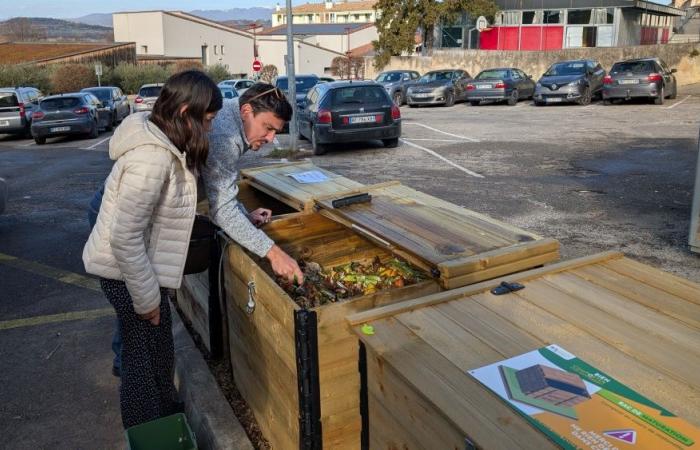In the parking lot below Oraison town hall, Damien Chiriazzulli and his daughter come to empty their small green bin into a wooden composter, before covering it with shredded material. The family opted for shared composting. There are around twenty households in Oraison using this composting service.
Since January 1, 2024, the anti-waste law has generalized the sorting of bio-waste and obliges communities to offer solutions for collecting food waste. In DLVAgglo, elected officials did not wait for this text to come into force to comply. Three composting solutions are offered by the city.
Individual composters…
Residents with a garden can equip themselves with a classic individual composter. Made of wood, it measures approximately one square meter and can be installed outdoors. “Since 2021, we have distributed 1,200. We are almost at 100 every two months”explains Vincent Allevard, first vice-president of the agglomeration, delegate for the environment. For those who do not have outside, the intercommunality offers worm composters.
Also read: Manosque: shared composting sites for bio-waste management in 2024
“They contain worms, earthworms, which eat the waste to produce compost“, explains the vice-president. It can then be used by owners to feed their plants. These two types of individual composters can be ordered from the Agglomeration by making an appointment on the citizen portal of the DLVA website. “Every month, there is a permanent presence in Volx on the DLVA sites and every two months we sell composters in the local recycling centers”explains Vincent Allevard. The community requests a deductible of €30 per composter. She covers the rest of the total cost, estimated at €80.
…Or collective
The third solution is that of shared composters. Currently installed in 12 municipalities, they allow users, who have registered voluntarily, to empty their food waste, which they have previously stored in a plastic bucket of around ten liters. Muriel Gouin lives in Oraison and, like Damien, uses the collector installed near the town hall. “We throw the waste into the middle bin and then we put a pan of crushed material, which is in the first bin”she explains. Once the central bin is full, it will be swapped with bin number three, and the compost will remain maturing for six to twelve months.


